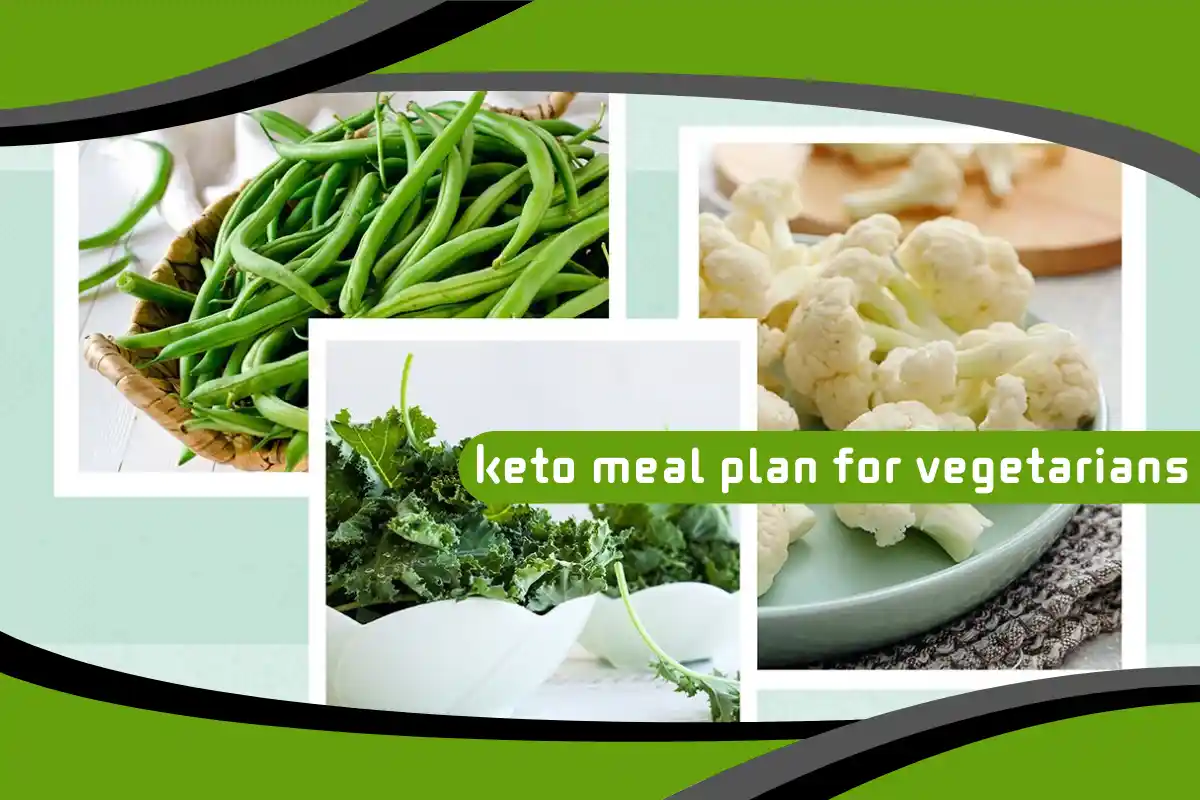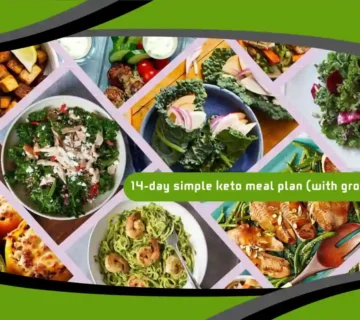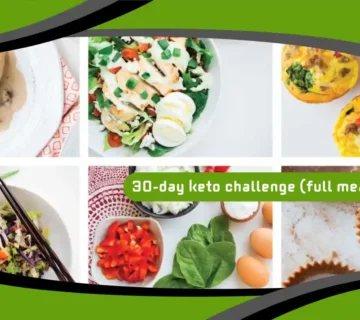The ketogenic diet is typically associated with high-fat, low-carb meals that often rely on animal-based proteins. However, for vegetarians, adapting to keto can be both possible and rewarding when approached with the right knowledge and planning. A vegetarian keto diet eliminates meat, poultry, and fish while focusing on plant-based fats and low-carb vegetables. The core goal remains the same: to shift the body into ketosis, a metabolic state where fat becomes the primary fuel source. This dietary style demands creativity to ensure nutritional adequacy without compromising on keto principles.

Benefits of a Vegetarian Keto Lifestyle
Combining the keto and vegetarian approaches can offer numerous health benefits. Weight loss is a common outcome, as is improved insulin sensitivity and reduced inflammation. A plant-based keto plan may also promote better digestion, clearer skin, and increased energy levels. Additionally, the diet encourages mindful eating and greater awareness of food quality. With the right foods, this lifestyle can also help lower cholesterol and blood pressure, while supporting hormonal balance and cognitive function.
Key Macronutrient Ratios for Success
To achieve and maintain ketosis, it’s essential to follow the correct macronutrient breakdown: approximately 70% fat, 20-25% protein, and 5-10% carbohydrates. For vegetarians, protein sources come from eggs, dairy, nuts, seeds, and low-carb legumes like tempeh. Healthy fats include avocados, olive oil, coconut oil, nuts, and full-fat dairy. Carbohydrate intake should be strictly monitored, focusing on non-starchy vegetables like leafy greens, zucchini, and cauliflower. This careful balance ensures ketosis is sustained without nutrient deficiencies.
Vegetarian Keto Protein Sources
Without meat, vegetarians must focus on high-quality plant-based and animal-free protein sources. Tempeh, tofu, and seitan are versatile options. Eggs and dairy products like Greek yogurt and cheese also provide substantial protein. For those avoiding soy, hemp seeds, chia seeds, and pumpkin seeds are excellent choices. Additionally, protein powders made from peas, rice, or collagen (for non-vegans) can help meet daily requirements. Balancing these proteins ensures muscle maintenance, satiety, and proper metabolic function.
Watch also: Keto Pizza with Fathead Dough: The Ultimate Low-Carb Comfort Food Reinvented
Choosing the Right Fats for Ketosis
Fats are the cornerstone of any keto diet, and vegetarians can access a wide array of options. Avocados and avocado oil are rich in monounsaturated fats. Coconut oil and MCT oil provide medium-chain triglycerides that directly support ketosis. Nuts like macadamias, pecans, and almonds offer both fat and fiber. Full-fat dairy, olives, nut butters, and ghee (if tolerated) also contribute valuable fatty acids. Prioritizing unrefined, natural fats enhances flavor, texture, and overall nutrient density.
Low-Carb Vegetables to Include
Vegetarian keto diets thrive on low-carb, high-fiber vegetables. Leafy greens like spinach, kale, arugula, and Swiss chard are nutrient-dense staples. Cruciferous vegetables such as broccoli, cauliflower, Brussels sprouts, and cabbage offer powerful antioxidants and phytochemicals. Other suitable vegetables include zucchini, mushrooms, bell peppers, asparagus, and green beans. These vegetables can be roasted, sautéed, steamed, or eaten raw, providing versatility and color to every meal while keeping net carbs low.
Foods to Avoid on a Vegetarian Keto Diet
Certain foods can disrupt ketosis or spike blood sugar levels. Avoid grains like rice, oats, and quinoa, as well as starchy vegetables like potatoes, corn, and carrots. Legumes such as lentils, beans, and chickpeas are also too high in carbohydrates. Stay away from fruits, with the exception of small portions of berries. Processed vegetarian foods often contain hidden sugars and starches, so reading labels is crucial. Eliminate added sugars, refined oils, and high-carb snacks to stay in ketosis.
Smart Dairy Choices for Vegetarians
Dairy can be an excellent component of a vegetarian keto diet when chosen wisely. Full-fat versions of cheese, yogurt, and cream offer both fat and protein. Look for products with no added sugars and minimal ingredients. Fermented dairy like kefir and Greek yogurt provides probiotics to support gut health. However, lactose tolerance varies among individuals, so monitor your body’s response. High-fat dairy should be used in moderation and balanced with other whole-food fats.
Egg-Based Meals for Protein and Satiety
Eggs are a powerhouse ingredient for vegetarians following keto. Rich in protein, healthy fats, and essential nutrients like choline and vitamin D, eggs can be the base for many satisfying meals. Scrambled eggs with spinach, mushroom omelets, and egg muffins with cheese and herbs are quick, delicious options. Eggs also serve as a versatile baking ingredient, binding agents for veggie burgers, and a filling breakfast choice that supports steady energy throughout the day.
Keto-Friendly Vegetarian Breakfast Ideas
Breakfast on a vegetarian keto diet can be both delicious and energizing. Try avocado stuffed with cottage cheese and hemp seeds, or a chia seed pudding made with coconut milk. Egg muffins with spinach and feta, almond flour pancakes with butter, or a high-fat smoothie using MCT oil and nut milk are also great choices. These meals are designed to be low in carbs, rich in fats, and keep you feeling full until your next meal.
Satisfying Vegetarian Keto Lunch Options
For lunch, consider zucchini noodles with pesto, eggplant lasagna with ricotta, or cauliflower rice stir-fry with tofu. Large salads with leafy greens, avocado, pumpkin seeds, and a creamy dressing make for a refreshing, nutrient-packed option. Stuffed bell peppers with cheese and nuts or grilled halloumi with sautéed greens are flavorful and filling choices. These meals help maintain ketosis while providing enough protein, fiber, and healthy fats for sustained energy.
Easy and Nourishing Dinner Meals
Dinner can be hearty and low-carb with options like coconut curry with tofu and spinach, creamy mushroom soup, or baked eggplant with parmesan. Stir-fried vegetables with seitan, paneer tikka with low-carb sides, or cauliflower crust pizza with cheese and olives are satisfying choices. Incorporating herbs and spices enhances the meals without adding carbs. Focusing on whole ingredients ensures your dinner remains keto-friendly and supports restful sleep and recovery.
Watch also: How the Keto Diet Affects Hormones: Impact on Insulin, Thyroid, and Reproductive Health
Snacking the Keto Vegetarian Way
Snacking doesn’t have to derail your keto progress. Think of macadamia nuts, olives, cucumber slices with guacamole, or cheese sticks. Seaweed snacks, hard-boiled eggs, or fat bombs made with coconut oil and cocoa powder are excellent ways to curb hunger. Be cautious of store-bought keto snacks that may contain hidden sugars. Keeping snacks simple and homemade gives you better control over ingredients and helps keep your macros in balance.
Staying Hydrated and Managing Electrolytes
Hydration is crucial on the keto diet, especially during the adaptation phase. The body sheds water and electrolytes more rapidly when carbs are restricted. Drink plenty of water and consider supplementing with sodium, potassium, and magnesium through foods or electrolyte powders. Include foods like avocados, leafy greens, and nuts that naturally supply minerals. Proper hydration supports energy, mental clarity, and prevents common symptoms like muscle cramps and fatigue.
Meal Prepping for Vegetarian Keto Success
Planning and preparing meals in advance can dramatically increase success on a vegetarian keto diet. Batch-cook staples like roasted vegetables, boiled eggs, and grain-free breads. Store ingredients in clear containers for easy access and combine them into different meals throughout the week. Creating a meal prep schedule helps avoid high-carb temptations and ensures that every meal aligns with your macros and goals. Preparation reduces stress and makes healthy eating more convenient.
Supplement Considerations for Nutritional Balance
A vegetarian keto diet may lack certain nutrients, so supplementation is important. Consider B12, iron, omega-3s (from algae oil), vitamin D, and zinc. While whole foods should be prioritized, supplements ensure you meet your needs, especially for nutrients typically found in meat. Consulting a healthcare provider or dietitian before starting supplements is recommended. Nutritional adequacy is key to feeling energized and maintaining long-term health on this restrictive plan.
Navigating Social Situations and Eating Out
Eating out or attending social events on a vegetarian keto diet can be challenging but manageable with preparation. Review menus in advance, and don’t hesitate to request substitutions like extra veggies instead of bread or rice. Communicate dietary needs politely and clearly. Bringing a dish to share or eating before you go can also help. With a little planning, you can stick to your goals without missing out on social experiences.
Overcoming Common Challenges
Vegetarian keto diets can be restrictive, which may lead to boredom or nutritional gaps. Rotating your meals, experimenting with new ingredients, and incorporating herbs and spices can add variety and excitement. Planning ahead and seeking support from online communities or a registered dietitian can help address concerns. Tracking your food intake using apps can also help monitor macros and prevent accidental carb creep.
Long-Term Sustainability of a Vegetarian Keto Diet
The key to sustaining a vegetarian keto lifestyle lies in personalization and balance. Flexibility is important—some people thrive on cyclical keto or targeted carb intake around workouts. Listening to your body, monitoring energy levels, and adjusting macros accordingly makes the plan more sustainable. It’s also important to reassess your goals and progress periodically. With the right mindset and structure, this diet can be a long-term, health-promoting approach.
Final Thoughts on Going Vegetarian Keto
A vegetarian keto diet offers the best of both worlds: the metabolic advantages of ketosis and the ethical and environmental benefits of plant-based eating. With careful planning, high-quality ingredients, and a willingness to adapt, this approach can provide all the nutrients your body needs while supporting your health goals. Whether you’re new to keto or a seasoned vegetarian, this fusion can open up a world of flavorful, satisfying, and health-boosting meals.
Watch also: Keto Meal Plan for Weight Loss: A Comprehensive Expert Guide to Fat-Burning Nutrition



No comment